- Home
- Rick Mofina
A Lifetime Burning in a Moment
A Lifetime Burning in a Moment Read online
Title
Introduction
A Lifetime Burning in a Moment
Contact Rick Mofina
Other Short Stories
About the Author
Also by Rick Mofina
Praise for Rick Mofina’s Books
A LIFETIME
BURNING
IN A MOMENT
A Short Story
RICK MOFINA
Copyright © 2009 & 2012 by Rick Mofina
This is a work of fiction. Names, characters, places and incidents either are the creation of the author’s imagination or are used fictitiously, and any resemblance to actual persons living or dead, business establishments, events or locales is entirely coincidental.
A Lifetime Burning
In A Moment
Rick Mofina
Kindle Edition
Copyright © 2012 Rick Mofina
Copyright © 2009 Rick Mofina
ISBN 978-1-927114-30-8
e-Formatting provided by Carrick Publishing
This e-book is intended for your personal enjoyment only. This e-book may not be sold or given away to other people. If you’re reading this e-book and did not purchase it, or it was not purchased for your use only, then please return to Amazon.com and purchase your own copy. Thank you for respecting the hard work of this author.
INTRODUCTION
The story, “A Lifetime Burning in a Moment,” was first featured in the anthology Dead in the Water, by Rendezvous Press and later appeared in The Penguin Book of Crime Stories, Volume II, edited and introduced by Peter Robinson. It is included in my e-anthology, Three to the Heart, my second small collection of short stories which is the follow up to my first anthology, Dangerous Women and Desperate Men.
I regard the stories collected in Three to the Heart to be among the best of my short crime fiction.
Rick Mofina
Rmofina @ gmail.com
A LIFETIME BURNING IN A MOMENT
by Rick Mofina
knew the boys who lived in the clapboard houses by the railroad tracks not only liked beating him up, but needed to beat him up.
He was the only part of their lives they could defeat because he didn’t dare hit them. Not like their fathers, who were always reeking of beer and cigarettes, or bruised mothers drowning in guilt.
“We can do whatever we want to you.” The biggest boy with the broken tooth would punch Devlin’s face and stomach, always failing to make him cry. “Nobody’s ever going to stop us.”
It was understandable then that years later colleagues at his firm would tell you that Dev, the quiet son of a widowed math teacher, listened more than he talked, as if conversation were a form of confrontation, something he had averted since the dark days of his boyhood by the railroad tracks.
As an actuary, Devlin took comfort in the parameters, calculations and sums of an orderly world where everything added up. But whenever life required him to deal with mundane matters, he felt out of place. Like today, with Blake, his little boy, waiting with him in the checkout line at the auto parts store.
The air smelled of rubber, echoed with compressors and the clank of steel tools dropped in the repair bays. This was a domain of greased-stained knuckles, rolled shirt sleeves and tattooed arms; of two-day growths, ballcaps and T-shirts emblazoned with skulls, flames and creeds on living, dying.
Devlin had come to buy a pea-sized bulb for his Ford’s dome light.
In line ahead of them a boy, a stranger slightly taller than Blake, turned and eyeballed Blake from head to toe. The boy’s face oozed contempt before he drove his fist into Blake’s shoulder. Blake tensed then retaliated with a punch just as the bigger boy’s father turned to see it. The man fired glances at Blake and Devlin then drew himself to his full height. He had a scar on his chin and a toothpick in the corner of his mouth.
“What the hell’re you doin’?”
Alarm rang in Devlin’s ears.
“Nothing,” he said. “I mean, it was a mistake. Blake, apologize.”
“But Dad?” Blake’s face reddened.
“We’re sorry. Blake, say you’re sorry.”
“But he started it.”
“Did not!” the bigger boy said.
“Liar!” Blake said.
“All right. Okay,” Devlin laughed nervously. “Just a little harmless horseplay. We’re terribly sorry.”
At that, the other man’s height appeared to increase as he assessed Devlin. The stranger shifted his toothpick, sucked air through his teeth then reduced Devlin to a waste of his time and turned away.
In the car, Devlin smarted from the incident but tried to conceal it as he struggled to replace the tiny bulb in the parking lot. He exaggerated his concentration, giving significance to an insignificant task. His sweating fingers lost their grip and he lost the bulb under his seat.
“Can we just go Dad?” Blake asked.
Driving home, Devlin found his son’s face in the rear view mirror and the sting of shame for having let him down.
“You have to understand something, son.”
Blake watched strip malls roll by.
“Non-violence is the best way to handle these situations.”
Blake said nothing.
“It’s just wise to back off. Because you never know how these things are going to go. You just never --”
“It’s all right, Dad.”
And with those words and with his tone, Devlin’s nine-year-old boy had passed judgement on him. Devlin was guilty of a monumental failing. He had been tested and shown to be a father incapable of defending his son.
At dinner that evening, Blake never revealed to his mother and his older sister what had happened. Neither did Devlin. It was not mentioned in the morning when they packed their Ford before setting off for their family vacation to the lake in eastern New Brunswick.
But it was all Devlin could think about.
It weighed on him as they drove through the rolling hills and low rugged highlands that straddled the border with Maine. They dropped the windows and cracked the sunroof. Elise, his wife, was barefoot, wearing shorts, a summer top and sunglasses. Her hair flowed in the breezes. Annie, their daughter, was listening to CDs and snapping through Wired magazine. Blake took in the countryside blinking thoughtfully at the forests.
Watching him, it dawned on Devlin that Blake’s reaction to the kid in the store was heroic. That in a split second he’d made a clear, morally justified choice to defend himself. Something he’d lacked the courage to do. But Blake was a boy, hardly mature enough to fathom the consequences, or appreciate the ramifications of a conflict. At least that’s how Devlin tried to rationalize it as the miles passed.
They navigated the route to their rented cabin from the crudely sketched map the manager had faxed. After they got off the highway, Elise identified the landmarks. “There’s the red-roofed barn, turn left there.” They drove along a ribbon of pavement that wound through rolling fields and pastures creased by streams with railroad tie bridges.
It wasn’t long before it narrowed into a twisting hilly dirt road, darkened by the thick cool sweet-smelling forests of cedar, pine, hemlock, butternut, maple, tamarack and birch. Under a quilt of light and shadow, the trees hid sudden peaks and valleys that hugged small cliff edges. It was beautiful, Devlin thought, loving the winding, undulating road. Annie and Blake were awed, as if they were penetrating a lost world. True to the map, after some forty-five minutes they arrived at a hamlet made up of a few buildings clustered around a sleepy four-corner stop with a blinking yellow light.
The Crossroads, the hand-painted sign read.
It had a small mall with a restaurant, a postal outlet, a one-pump gas station, and Pride’s
General Store with a fat drowsy dog nearly asleep on its front porch.
“Pride’s. That’s where we pick up the key to our cabin,” Elise said.
“Place looks like a ghost town.” Devlin parked.
The planks of the porch creaked and the dog raised its eyebrows to greet them as they entered. Elise bought a few groceries and snacks while Devlin showed the teenage clerk his driver’s license. She produced a small envelope from the till. It contained a single bronze key with “Number 7,” carved into it.
Back in the car, as they started off on the final portion of their trip, Elise tilted an open bag of potato chips to Devlin then pointed to the restaurant. “It looks nice. Let’s go there for dinner after we settle in at the cabin.”
“Sounds good.”
The last stretch lasted some twenty minutes along a treacherous pathway that seemed even more primeval than the road they’d already travelled. Leafy branches slapped and scraped the Ford as gravel popcorned against the undercarriage. Soon the lake made its first appearance on the left, flashing between the trees in patches of brilliant blue.
It seemed so near.
“This is so cool,” Annie slid off her headset. “It’s like the loneliest place in the world. Like we travelled back in time or landed on a strange planet or something. I love it. It’s so cool.”
Blake wondered about Native legends and lost trapper ghost stories.
“Oh, turn here,” Elise pointed to a broken birch which suggested the letter ‘T’. “This is it.”
Devlin stopped, dust clouds enveloped them as he inched off the road onto an earthen path curtained with a tangle of tall shrubs that swallowed their car. Through the stands of trees they glimpsed the lake and their cabin.
It was built with hand-hewn pine and had a wide deck with Adirondack chairs. There was a hammock tied between a pair of tall cedars. The cabin’s lake front wall was a floor-to-ceiling window with French doors. Inside, hardwood floors gleamed to the fieldstone fireplace.
The main floor had a large living room dining area. The kitchen had a small fridge, freezer and stove, which were state-of-the-art energy-efficient, powered by batteries and solar panels on an exposed hillside. The sink had a pump to draw clean well water. There was a small hot water reservoir. There was a master bedroom downstairs and two large spacious bedroom areas in the loft which Blake and Annie found immediately.
There was one sink in the small bathroom but that was it. Beyond that there was no indoor plumbing. No toilet. No tub or shower. There was a small outhouse at the rear. The lake was where people bathed. No phone, no electricity. No computers, no Internet, no faxes. Neighbors are rare in these parts. “It’s just you, the lake and the woods,” Elise smiled after she’d finished reading the manager’s note.
Energized, they unpacked, changed then waded into the water of their private beach to swim off the sweat and dust of the drive. Curious, Devlin walked through waist-high water to inspect the gleaming boat tied to the dock. It came with the cabin.
“Think you can drive it,” Elise smiled.
“You bet, let’s go for a ride.”
They all climbed into the aluminum craft. The 25-horsepower outboard came to life with a bubbling rumble that churned a creamy white wake as Devlin eased it ahead before opening up the throttle. The motor whined, raising the bow as he adjusted the tiller, centering its point squarely on the middle of the lake. Warm breezes brushed their faces.
It felt good.
A baptism of sorts, Devlin thought, warmed by the absence of others.
Bedrock as old as time formed the distant peaks that guarded the lake. They jutted from rolling forests laced with clear water streams and meadows jewelled with red trilliums, orange daylilies, blue flags, and bunchberries. The lake was known as God’s secret sanctuary, according to the history Devlin had read. For years, it was all-but-forgotten, hidden in a remote reach of Canada’s border with New England. Other than an abandoned Jesuit outpost, no lasting settlements had ever been recorded here. Much of the territory had remained unexplored well into the late 1800s. The demanding terrain had repelled lumber companies.
In 1893, a Halifax shipping tycoon bought a 400-acre section surrounding the lake. He died without ever having set foot on it. His acquisition was ignored by his estate, except for the sale of a few lakeside tracts to satisfy an obscure turn-of-the-century property requirement. Situated on a peninsula, the parcels were separated by several acres of dense forest and accessed by narrow bush roads. It resembled skeletal fingers shaping a claw, the final extension of some unfortunate who had reached the lake to die.
“See.” Devlin pointed his fork at the map on the paper placemats in the restaurant, where later that day after the boat ride, he continued telling his family about the region’s history over a dinner.
“Like a skeleton’s hand,” Blake agreed. “Mom, where’s our map, so we can see where our cabin is and where we drove in the boat?”
“In the car on the front dash. We’ll check later, sweetie.”
Devlin and his wife had club sandwiches. The kids had cheeseburgers. They were the only customers. After dessert of homemade apple pie and ice-cream, they strolled outside for some window shopping at the adjacent craft shop which had just closed for the day.
“This place is a dead zone,” Annie said after oohing and ahhing with her mother over a bracelet in the shop window. As they turned to leave, Devlin saw a man walking away quickly from the side of their Ford to a pickup truck in a far corner of the empty lot.
He’d thought nothing of it until his family approached their doors and Devlin saw the beer bottle wedged between the right rear tire and the ground.
He stared.
It had been placed strategically so it would shatter and shred their tire when they drove off. Now why would someone do something like that? Devlin glanced around for an answer, glimpsing the man nearing the pickup. He heard the man’s snickering, echoing with the chuckling of a second man waiting behind the wheel of the truck.
For a few heated seconds Devlin didn’t move. The sight of the bottle hit him. The laughter hit him. Like blows to his stomach, his head, his dignity, they pounded him back through time, passed the humiliation in the auto shop, back through his life to the railyard beatings. He began walking to the truck without realizing he was heading that way until Elise begged him to come back.
Devlin kept walking.
It might’ve been because all his life he’d failed to stand up for himself. Had always bit back on his anger. It might’ve been because he’d failed to stand up for Blake. It might’ve been the pressure pent-up from years of never standing up to anyone. But deep in his gut, Devlin felt the quaking of an explosion. You just don’t pull a stunt like this, laugh and walk away. No sir. There had to be an accounting. And by God, he’d eaten too much crap in his life, not to be entitled to a little respect. Indignation hammered in his chest as he neared the truck.
The engine started.
The battered truck lumbered triumphantly toward the lot’s exit, ticking and creaking. As it moved away slowly, the two men looked at Devlin. He stared into the darkened cab then glanced at his family, feeling their fear pulling him back to the safety of doing nothing. To let it go. But he couldn’t let it go.
Something was burning with such intensity it consumed him.
A sudden yelp of laughter triggered his final decision.
Devlin trotted after the pickup. Planting himself alone in the lot, he pulled out his weapons. A pen and notebook. Defiantly ignoring the fact the two men were watching him in their mirrors, he scrawled down their plate.
Good. He had their number. That’s all he needed, he thought turning to join his family in their car.
“John what’s wrong with you?” his wife asked. “Running after those two guys. That was so foolish.”
“Excuse me,” Blake said.
“Yeah, Dad!” Annie said. “It was so embarrassing!”
“Excuse me,” Blake said.
�
��Why didn’t you just let it go?” his wife said.
“Excuse me,” Blake said. “But I think those guys are coming over here.”
The truck had veered from its course and was approaching them. Devlin’s Adam’s apple lifted then dropped. He hadn’t expected this.
“Please just stay in the car,” his wife said. “Calm down and don’t make this any worse. Kids, put your windows up.”
Devlin pressed the button automatically locking all four doors. The truck ticked and creaked as it eased beside him, stopping when the driver’s door drew up across from Devlin’s, leaving about six feet between them. The driver’s window was down. Devlin lowered his.
Half way.
One muscular arm tattooed with a spider’s web was draped over the truck’s steering wheel, the other rested on the door frame. The old pickup had a beat-up fiberglass cap over the bed and a crumpled front fender, as if it’d rammed something. The driver took his time dragging on his cigarette and spewing a smoke stream to the sky before turning to Devlin.
“Is there a problem, mister?”
Devlin figured the man to be his age. He was wearing dark glasses, a filthy ballcap and looked as though he hadn’t shaved for several days.
“Your friend seems to have misplaced his beer bottle under my tire. I think he wanted to give me a flat.”
“Give you a flat?”
The man’s face soured. He turned to his passenger who appeared mystified. The driver turned back to Devlin.
“I think you’re mistaken.”
“Mistaken?” Devlin made a point of surveying the empty lot. “You’re right. Obviously, with no one else here, it couldn’t have been you.”
The air tightened as if a gun had been cocked.
“John please!” his wife whispered.
“John?” the man had heard. “That your name?”
The driver said something to his passenger and they laughed. Devlin couldn’t make out what he’d said about his name as Elise squeezed his knee. He glanced at the frightened faces of his children in the mirror. Elise was now squeezing so hard it hurt.

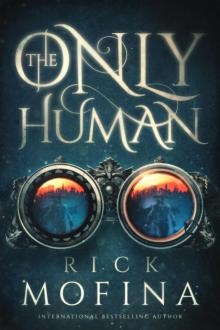 The Only Human
The Only Human Tom Reed Thriller Series
Tom Reed Thriller Series![[Tom Reed and Walt Sydowski 04.0] No Way Back Read online](http://i1.bookreadfree.com/05/tom_reed_and_walt_sydowski_04_0_no_way_back_preview.jpg) [Tom Reed and Walt Sydowski 04.0] No Way Back
[Tom Reed and Walt Sydowski 04.0] No Way Back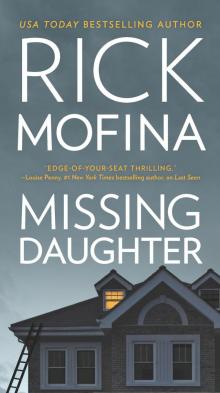 Missing Daughter
Missing Daughter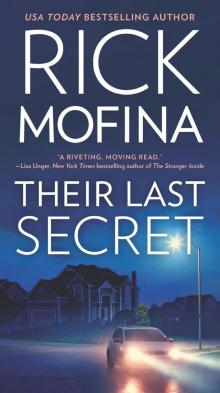 Their Last Secret
Their Last Secret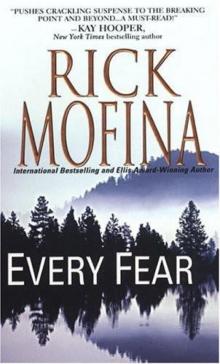 Jason Wade - 02 - Every Fear
Jason Wade - 02 - Every Fear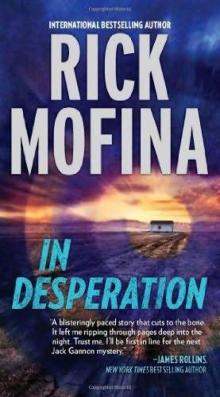 In Desperation
In Desperation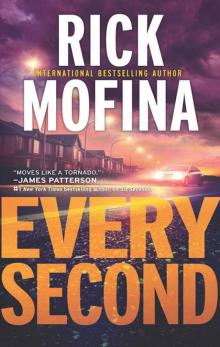 Every Second
Every Second Full Tilt
Full Tilt Search for Her
Search for Her The Last Pursuit
The Last Pursuit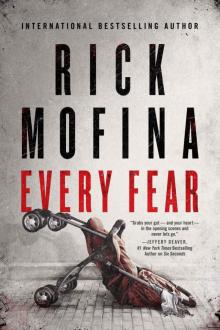 Every Fear
Every Fear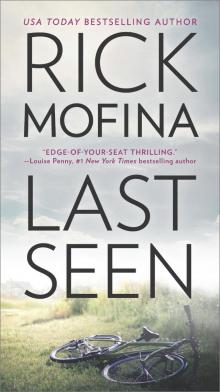 Last Seen
Last Seen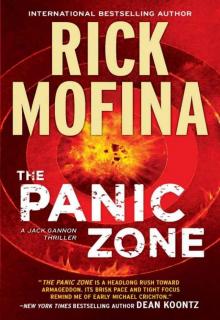 The Panic Zone
The Panic Zone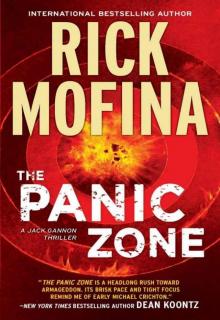 The Panic Zone jg-2
The Panic Zone jg-2 Free Fall
Free Fall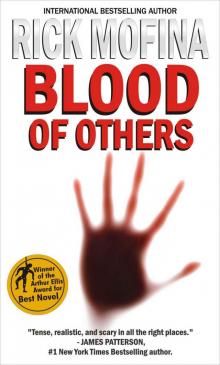 Blood of Others
Blood of Others![[Jason Wade 02.0] Every Fear Read online](http://i1.bookreadfree.com/i1/03/31/jason_wade_02_0_every_fear_preview.jpg) [Jason Wade 02.0] Every Fear
[Jason Wade 02.0] Every Fear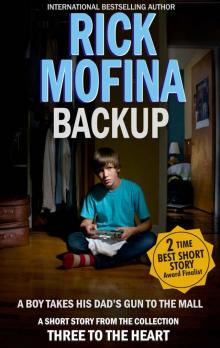 Backup
Backup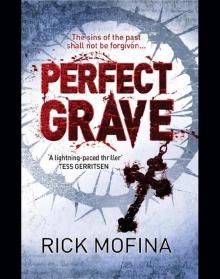 Perfect Grave
Perfect Grave Into the Dark
Into the Dark Whirlwind
Whirlwind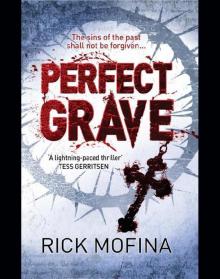 Perfect Grave jw-3
Perfect Grave jw-3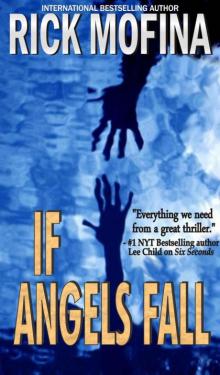 If Angels Fall (tom reed and walt sydowski)
If Angels Fall (tom reed and walt sydowski)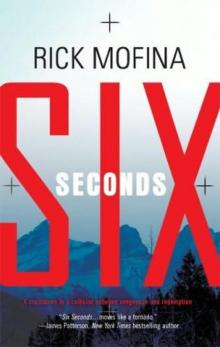 Six Seconds
Six Seconds If Angels Fall
If Angels Fall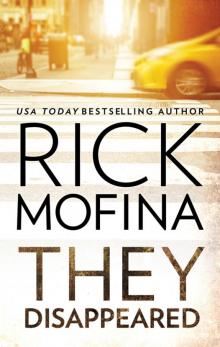 They Disappeared
They Disappeared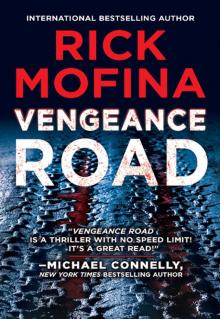 Vengeance Road
Vengeance Road Before Sunrise
Before Sunrise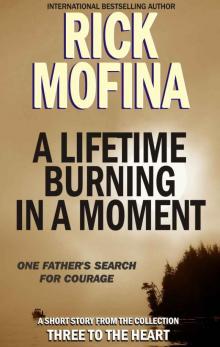 A Lifetime Burning in a Moment
A Lifetime Burning in a Moment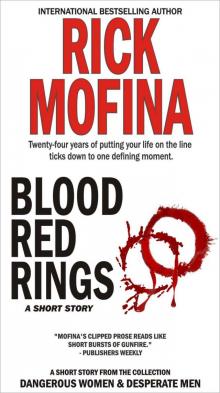 Blood Red Rings (Dangerous Women & Desperate Men)
Blood Red Rings (Dangerous Women & Desperate Men) As Long As We Both Shall Live (Dangerous Women & Desperate Men)
As Long As We Both Shall Live (Dangerous Women & Desperate Men)![[Tom Reed and Walt Sydowski 01.0] If Angels Fall Read online](http://i1.bookreadfree.com/i2/04/12/tom_reed_and_walt_sydowski_01_0_if_angels_fall_preview.jpg) [Tom Reed and Walt Sydowski 01.0] If Angels Fall
[Tom Reed and Walt Sydowski 01.0] If Angels Fall Cold Fear
Cold Fear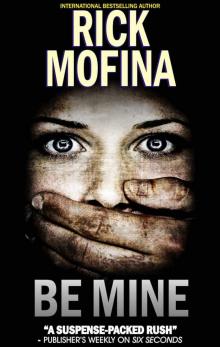 Be Mine
Be Mine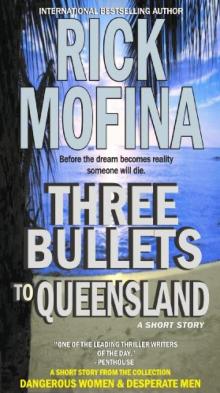 Three Bullets To Queensland
Three Bullets To Queensland